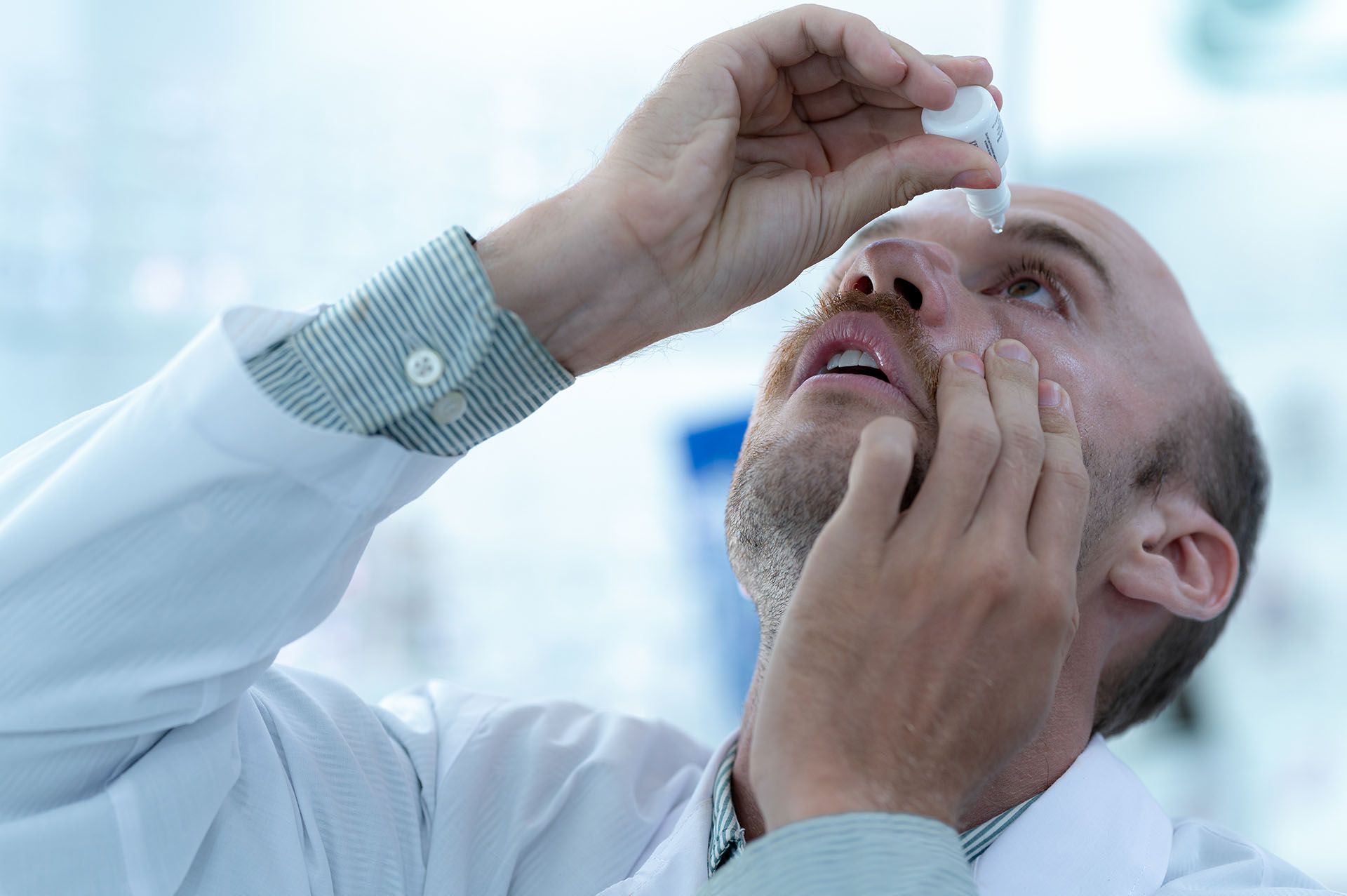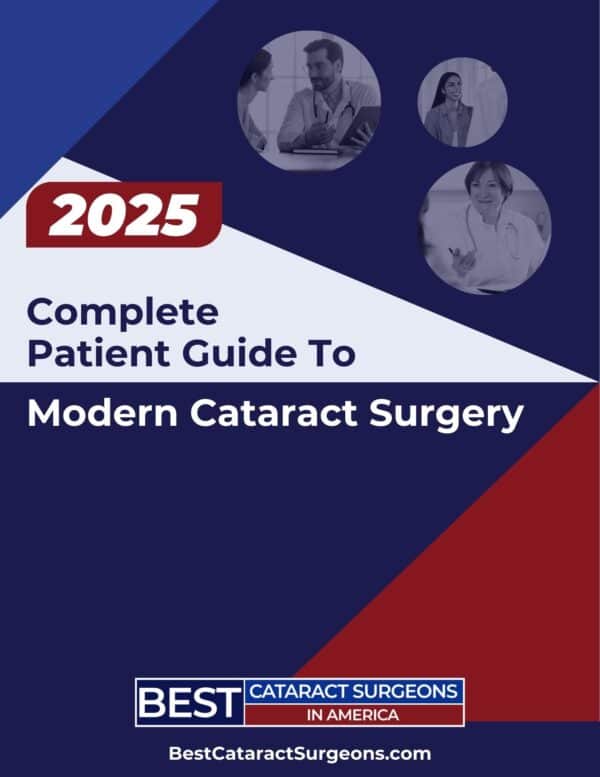After any surgery, some of the most important questions patients have are about when they can return to activities they enjoy or need to do. Common activities include work, exercise, hobbies, and, of course, driving.
Every patient is different, and an individualized discussion with your doctor is necessary to help set your expectations. Some patients have more advanced cataracts and will recover slower than more routine cataracts, which many patients will be able to drive the next day.
In this article, we’ll discuss some of the key factors involved in determining when you may be able to drive after your surgery.
A Few Things Before We Start…
First, and foremost, this is not personalized medical advice or legal advice about when you are safe to drive or legally allowed to drive. This article gives general background information to help guide you through having this conversation with your doctor. Your doctor will give you a more personalized answer to your questions about driving.
Secondly, being “legal to drive” doesn’t mean that you are necessarily “safe” to drive. Even if your vision is good enough the very next day to legally drive, some factors can lead to your eyes not working well together, or your brain getting used to your new vision, such that you may want to take it slow before getting back behind the wheel.
How long after cataract surgery can you drive a car?
There’s no “one-size-fits-all” answer to this question.
For many patients, it might be the very next day. Cataract surgery for routine or average cataracts can often result in excellent vision the very next day. If you have a modern cataract surgery implant, you may be easily legal and safe to drive the very next day.

If you choose basic cataract surgery without astigmatism correction, you’ll need to wait until you are fully healed to get a new glasses prescription such that you are legal to drive. This typically takes about a month to let your prescription stabilize, at which time you can order glasses.
In other patients, who have more advanced or complex cataracts, complications from surgery, or other eye conditions, the healing can be much slower, taking weeks or months for a full recovery. Sometimes additional surgeries can be necessary.
One of the most important factors in determining when you’ll be able to drive after surgery is the status of your other eye. We’ll discuss more on that a little later.
How long after cataract surgery can you see?
Let’s take a step back and answer an even more fundamental question… How long after your surgery should you expect to see?
Nowadays, most patients who have cataract surgery with astigmatism correction can see well enough to legally drive the very next day. For example, if a patient gets a toric lens implant, their astigmatism will be corrected faster than having to wait a month for glasses.
In the past, the recovery time from surgery was much slower, taking days to even weeks for patients to regain legal driving vision.
Conditions that may delay your healing
However, it’s important to remember that every patient is different. Several eye conditions can result in delayed healing after surgery. These may include:
- Advanced cataracts
- Fuchs endothelial dystrophy
- Dry eye syndrome
- Other ocular diseases, such as glaucoma, macular degeneration, or other eye conditions.
- Diabetes
- Type of cataract or maturity of cataract
Of course, cataract surgery is only intended to fix your cataract. If you have other eye conditions that impair your vision, cataract surgery typically does not fix these conditions.
Sometimes advanced cataracts make it difficult to diagnose problems in the back part of the eye. Just like an advanced cataract can make vision blurry for patients, it can make the view of the retina and optic nerve blurry so that doctors don’t have complete certainty that the back of your eye is healthy.
In other situations, doctors may be able to diagnose conditions in the back of the eye, such as epiretinal membranes or macular degeneration, but it may be difficult to tell how much of your vision symptoms are related to the cataract compared to this other condition.
Another example is diabetic retinopathy. After every cataract surgery, there is inflammation. This inflammation can cause damaged blood vessels from diabetes to leak, resulting in delayed healing, or worsened diabetic retinopathy, which may require additional treatment. Patients who have cataracts and diabetes should discuss this topic with their surgeons.
It’s important to have a personalized conversation with your doctor about the overall health of your eye before your surgery to set your expectations for how your vision will look afterward.
How does my other eye factor into driving after surgery?

Even if the surgery on your eye is routine, and your vision is excellent the next day, your other eye may limit your ability to drive after surgery. How can this be? Let’s consider a few examples:
Extreme prescription in the other eye
Our brain fuses the images it receives from each eye. By merging these images we get a 3-dimensional view of the world and depth perception.
Our brain likes it when the prescription between our two eyes is relatively close together. Most people have some difference in prescription between their two eyes. This is common and isn’t something for most people to be concerned about. However, if the difference between the two eyes is greater than a certain amount, then the brain can have a hard time merging the images, a condition called aniseikonia.
This problem arises because of the way a glasses lens magnifies or minifies, an image, depending on whether it is a farsighted or nearsighted prescription.
That means if you are a contact lens wearer before your cataract surgery, you typically don’t need to worry about this.
However, if you have an extreme glasses prescription, and have surgery on only one eye, you may have difficulty with your vision until your other eye has surgery.
In summary, if you wear glasses and are planning to have cataract surgery, discuss this with your doctor.
Ocular disease in the other eye
Another scenario in which your vision in the eye that had surgery may be excellent, but you may want to avoid driving for a little while if the vision in your other eye is limited.
As we mentioned in the last section, your brain gets used to using your two eyes together. If your vision in the other eye is limited, you may not immediately feel safe until you get used to your two eyes working together.
How soon after cataract surgery can you do other activities?

Reading
Great news! You can start reading as soon as you’d like after your surgery. While your vision is healing, it may be blurry. However, reading will not cause any harm after your surgery.
Computer work
Just like with reading, you can use your computer or cell phone right after surgery. Your vision may be blurry for the first few days. However, using your computer or cell phone will not cause any harm or delay in the healing process.
Exercise
Different surgeons have different recommendations after any eye surgery. We recommend asking your surgeon for their recommendations here.
In general, you want to take it easy for at least a few days. In the early days after surgery, it is important to not bear down too hard by lifting heavy weights. This can cause pressure to build up behind the eyes and put stress on the incisions.
Swimming / Watersports
In addition to generally not doing strenuous activities, many surgeons recommend avoiding swimming or watersports. There can be both an infection risk, and the pressure from being underwater can put stress on the eye.
Please note, if you choose to have the light adjustable lens implant, you will be required to wear protective glasses for several weeks after the procedure. These glasses may limit your ability to participate in swimming and watersports. For example, you will not be able to swim outside without wearing these glasses.
Ask your doctor about specific activities, such as SCUBA.
Can Anything Speed Up The Process?
Yes. Correcting your astigmatism will correct your prescription faster compared to waiting several weeks for glasses.
Also, laser cataract surgery may reduce the amount of inflammation and swelling associated with your procedure, resulting in faster recovery times.
In summary… How soon after cataract surgery can you drive?
Can I Drive On The Day Of Surgery?
No. Almost all patients receive sedatives for surgery. These sedatives make it unsafe to operate a motor vehicle. Do not drive on the day of your surgery. It can be both illegal and unsafe.
Can I Drive The Day After My Surgery?
For many patients, the answer is ‘yes’. However, every patient is different. Setting your expectations for driving involves a personalized conversation with your surgeon.








